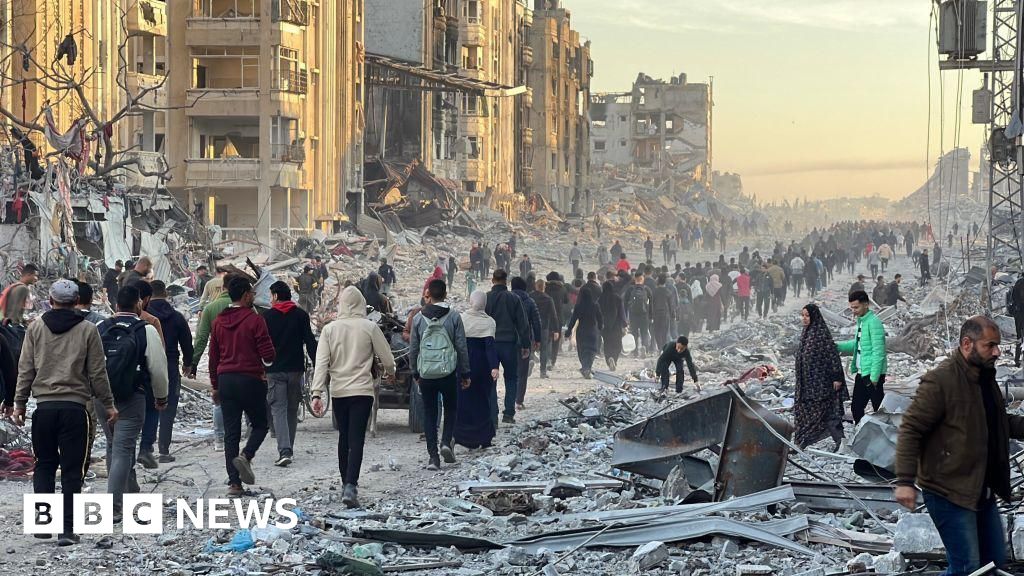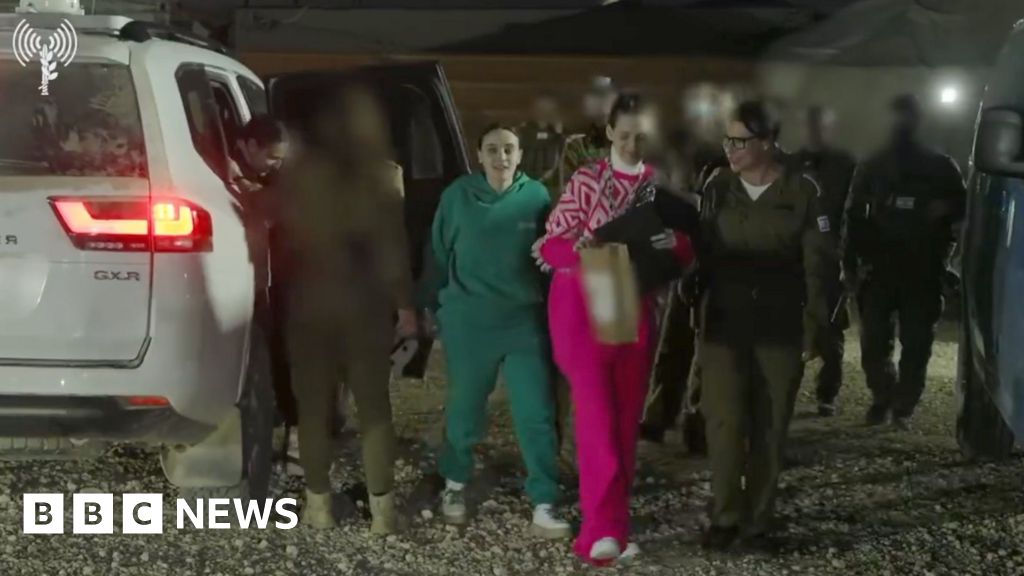ARTICLE AD BOX
By Rob Cameron
BBC News, Prague
Image source, Getty Images
Image caption,63% of the total Czech population is fully vaccinated
One of the more bewildering aspects of the Covid crisis in the Czech Republic is the hostility and aggression directed at health workers. But it is a problem that existed before the pandemic, and is unlikely to end with it.
"A year ago people were applauding health workers. Now they're cursing them," said Dr Milan Kubek, an angiologist, sitting in his surgery in a small polyclinic in Prague's 9th District.
Angiology - also known as vascular medicine - is perhaps an uncontroversial field. But Dr Kubek has been regularly followed home by an angry mob and has had excrement pushed through his letter box. He's reported to have received police protection.
This is due to his role as president of the Czech Medical Chamber, and his vocal support of Covid restrictions and vaccination.
"We're professionals of course and care for every patient. But we're also people, with the right to our own opinions," he told the BBC. Earlier I'd watched one of several Facebook videos featuring Dr Kubek being harangued by a group of anti-vaxxers carrying megaphones.
"The level of enthusiasm and willingness to sacrifice ourselves has of course decreased as people started to become aggressive and rude. Some of what we've been through lately is just unprecedented."
Vaccination teams have been harassed by anti-vaxxers; one mobile crew was even pelted with stones.
Czech hospital staff treating Covid victims have described arguing with hostile relatives and even patients themselves, who've been so indoctrinated by disinformation they've refused to accept either the diagnosis or the cure.
GPs have been described being verbally abused by patients when asked if they were vaccinated. Dr Kubek told me the elegant, well-spoken 70-year-old lady who emerged from his surgery as I went in had just moments ago told him to get lost when he enquired about her vaccination status.
"And her husband died of Covid," he said.
Dr Kubek glanced nervously at his watch - he was due on Czech television shortly for another media interview. As soon as we had finished, he jumped up and began packing his things into a small rucksack, embossed - incongruously - with the Harry Potter logo.
Some medical staff learn self protection as part of their training for dealing with aggressive patients
Across town, in a small gym at Prague's Higher Medical Technical School, I was handed a pair of boxing gloves by Jaroslav Pekara, a nurse and paramedic who also teaches students how to protect themselves from aggressive patients.
"Cover your face - like this," he exhorted, as we danced around the small padded room, deflecting what were (for my sake) very gentle blows. Four students - two trainee paramedics, a midwife and a nurse - looked on.
Natalie - the future midwife - laughed when I asked if she thought she'd ever need to use such training in the maternity ward.
"Well, I hope I'll never need it… but it's good to know."
The sparring came at the end of the hour-long training session, which was dominated by how to safely hold or pacify people who might be drunk, or lashing out, or in danger of hurting themselves. In fact most of Jaroslav's training focuses on de-escalation; ensuring that paramedics, nurses and doctors never find themselves in a situation where they're shielding their face with their fists.
Sometimes, however, communication - and de-escalation - fails.
Indeed, Jaroslav is not just a paramedic but an academic - his doctoral thesis was entitled "Violence against general nurses in nursing care in the Czech Republic". He believes some medical staff are partly responsible for confrontations, which can often be de-escalated with the right approach - both the appropriate choice of words and the right body language.
Staff at a Prague psychiatric hospital receive practical de-escalation training
"What we lack is practical education," said psychiatric nurse Jan Behounek, as we stood in Building No. 19 at Bohnice Psychiatric Hospital, the Czech Republic's largest.
The two-storey villa - one of three dozen set out in the hospital's extensive, tree-lined grounds - has been transformed into a training centre, a replica of one of Bohnice's clinics.
"What we do here is practical training of de-escalation techniques in realistic situations so our staff can use them on a regular basis. To avoid the type of mistakes that can escalate to the point where we have to use force," he told me.
I watched as Jan - responsible for quality of care at Bohnice - helped to direct a team role-playing various scenarios: An unhappy young woman brought in for substance abuse by bored police officers; an aggressive father confronting a psychiatrist over his daughter's self-harm.
Jaroslav Pekara led the practice seminar, which will be used for training Bohnice staff.
"Some of us cry, some of us close inside of ourselves. Other people are shouting, are yelling, are angry," said psychiatrist Dr Barbora Mechurova, today role-playing the patient's mother.
She believes the pandemic has taken a severe toll on the nation's mental health.
"Each one of us is challenged by the Covid crisis. And that's the reason why people are afraid, are tense, are stressed."
At one point the Czech Republic had the highest per capita Covid death rate on the planet. Now, as elsewhere, vaccination is helping the virus become endemic (63% of the total Czech population is fully vaccinated, compared to the EU average of 69%), and the sense of crisis is beginning to recede.
But Covid has held up a mirror to Czech society, and much of what it's revealed about the doctor-patient relationship - as well as human behaviour - is troubling.
After all, most people become paramedics, midwives or doctors because they want to help others. They would rather not have to learn how to protect themselves.
BBC Reality Check answers your vaccine concerns

 2 years ago
21
2 years ago
21








 English (US) ·
English (US) ·